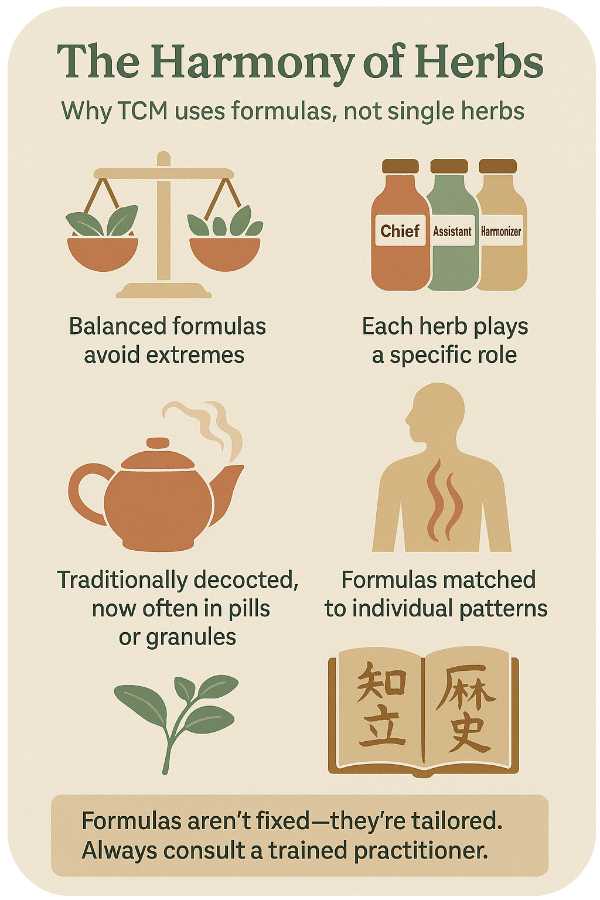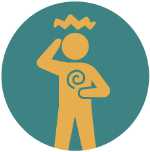Herbal Formulas:
Why They're Prescribed, Not Picked
In the supplement aisle of many natural food stores, you'll find shelves full of single herbs: ginseng, licorice, ginger, astragalus. While these are all useful plants, Traditional Chinese Medicine (TCM) rarely relies on herbs in isolation. Instead, TCM practitioners prescribe formulas, carefully balanced combinations of herbs designed to work together in harmony.
This approach has a long history. Many classic herbal formulas were developed over a thousand years ago and are still in use today. A well-known example is Liu Wei Di Huang Wan, a six-herb blend used to nourish yin and support kidney function. Another is Xiao Yao San, often recommended for stress-related digestive issues and emotional tension. These formulas are not just random groupings of ingredients—they are structured like small ecosystems, where each herb plays a role. One might be the "chief" herb targeting the main condition, while others support, guide, or moderate its effects.
Why is this important? Because single herbs, while potent, can sometimes be too warming, drying, or stimulating on their own. Formulas help minimize side effects and improve effectiveness by adjusting the overall energetic impact. A classic example is the use of licorice root in many formulas... not just for its sweet taste, but because it harmonizes the other ingredients and helps protect digestion.
Modern herbal prescriptions are usually adapted to the individual. A practitioner might start with a base formula and modify it, adding or removing herbs based on a person's constitution, symptoms, and seasonal factors. This customized approach makes herbal medicine both flexible and precise. It also means that self-prescribing based on symptoms alone, choosing an herb for sleep, digestion, or energy, may not address the root cause and can sometimes create imbalance elsewhere.
There is growing interest in herbal formulas beyond Asia. Scientific studies have begun to explore their effects, particularly in areas like metabolic health, immune function, and hormonal regulation. However, the full strength of herbal therapy lies in the traditional framework that guides its use. Without that context, formulas risk being misunderstood or misused.
Working with a trained TCM herbalist ensures that formulas are tailored, safe, and appropriate for your condition. It's a system that values balance—between herbs, within the body, and over time. And that's why, in Chinese medicine, they typically prescribe formulas—not just individual herbs.
Vocabulary Guide:
- Liu Wei Di Huang Wan (六味地黄丸): A classic six-herb formula used to nourish yin and support kidney function
- Xiao Yao San (逍遥散): A traditional formula used to regulate liver qi, relieve stress, and improve digestion
- Chief herb: The main herb in a formula that targets the primary symptom or condition
- Constitution: A person's overall body type and energetic balance, used in TCM diagnosis and treatment planning
- Licorice root (甘草 gān cǎo): Often added to formulas to harmonize other herbs and support digestion.





